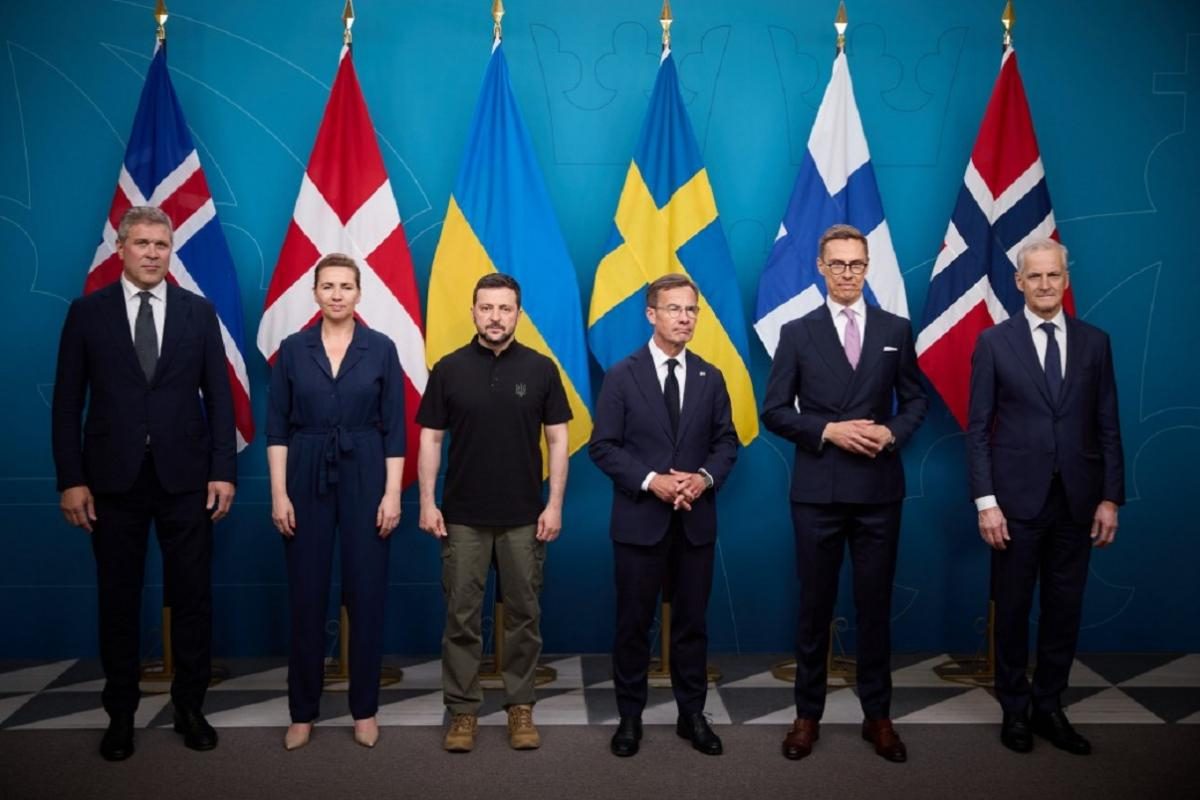Given the impossibility of joining NATO in the near future, Ukraine has sought alternative security guarantees by signing defense agreements with two dozen countries. The terms of these security agreements are based on promises of military assistance, do not guarantee that they will not turn into”new Budapest Memoranda” and, at best, promise Ukraine a sword, not peace.
This week, Ukraine signed defense agreements with Romania and Poland. In total, Kyiv has signed security agreements with more than two dozen countries in the last six months. Ukraine has signed agreements with Britain, the United States, Germany, France, Denmark, Canada, Italy, the Netherlands, Finland, Latvia, Spain, Belgium, Portugal, Sweden, and Iceland. The first 12 security agreements have been concluded for a total of $23 billion in support, and preparations for agreements with other partners are underway.
The 10-year agreements signal to Russia that Ukraine will receive fixed supplies of weapons and money from its allies every year, so the Kremlin should not expect an easy victory. In the signed agreements, Western partners also pledged to provide economic support and maintain anti-Russian guarantees. The agreements provide regular resources to Ukraine for the maintenance of an army capable of resisting Russia. They provide for long-term stable investments in Ukraine’s defense industry, training missions and exercises with NATO. It mentions security guarantees, which outline a number of allied commitments to support us.
In particular, the UK, as one of our country’s most active allies, promises to provide “prompt and reliable security support, modern weapons (for defense) on land, sea and air, economic support, and sanctions that will have a price for Russia” in the event of a Russian attack. At the same time, the agreement provides time for consultations in case of a repeat of Russian aggression. Ukraine is promised long-range missiles, air defense, artillery ammunition, humanitarian cooperation, protection of critical infrastructure, etc. The agreement with Germany provides for 24 hours for consultations in the event of a future Russian attack on Ukraine. Germany confirms that it will then provide modern military equipment and money in accordance with its own and international law.
All partner countries promise weapons, money, accession to sanctions, etc. At the same time, the conditions for Ukraine are obligations to implement reforms aimed at fighting corruption, building an inclusive society, and ensuring the rule of law and the independence of the judiciary. It is possible that Kyiv could be denied military support if insufficient efforts are recognized in the fight against corruption and the implementation of reforms.
Many of the agreements state that they will be in effect until Ukraine joins the Alliance and will cease when collective defense obligations come into force. However, the agreements provide for the possibility of prolongation by mutual agreement of the parties in case Ukraine is not accepted into NATO in 10 years.
Unfortunately, none of the visible parts of the defense agreements provide for the deployment of Western troops to Ukraine in the event of repeated aggression. No real deterrence factors, such as the deployment of military bases on Ukraine’s eastern border, are specified. There is also no clear responsibility for not providing assistance to Ukraine – the arrival of a new government in an ally country can stop or freeze such assistance, claiming that the warehouses are out of ammunition. A change of government in Washington or in European capitals, or an opposition party blocking military aid, could turn any defense agreement into a “Budapest Memorandum.”
However, this is better than any diplomatic achievement that Ukraine has had since independence. We will not be left completely alone, as it was in February 2022, and we will definitely be given weapons and assistance if we remain a democracy. Given the right government policy, defense agreements with more than two dozen countries on arms supplies can become a limited but deterrent to an aggressor who knows that a new attack on Ukraine will cost even more.
Author: Valeriy Maydanyuk


Leave a Reply